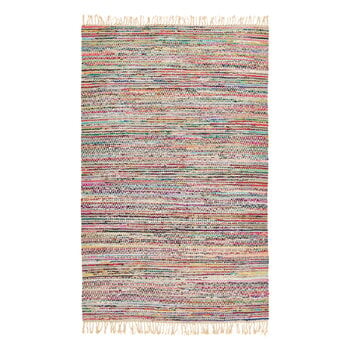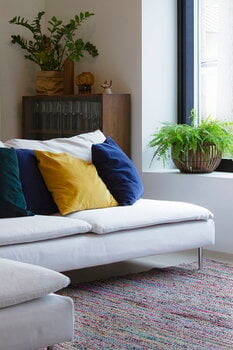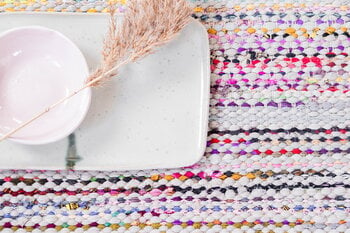Finarte's Kuhmo rug combines Finnish rag rug traditions with the rich colour palette of India. The rug is crafted using traditional Finnish weaving techniques, but the material comes from surplus fabrics of the Indian textile industry.
As their name kind of suggests, the original idea of Finnish rag rugs was to make use of leftover materials. Traditionally, the rugs were made using upcycled fabrics, or rags, if you will, in an effort to not let anything go to waste. Therefore, the rugs are always unique in their colour and pattern depending on the materials used for each one.
Hand-woven in India, the Kuhmo rugs follow this tradition by having local leftover fabrics as their material: the rugs are made of sari clothing offcuts. Due to both the manufacturing process and the special leftover material, each Kuhmo rug is a unique example of exquisite artisanship, beautifully fusing the traditions of Finland and India. As is common for traditional rag rugs, the Kuhmo rug can also be used upside down.








